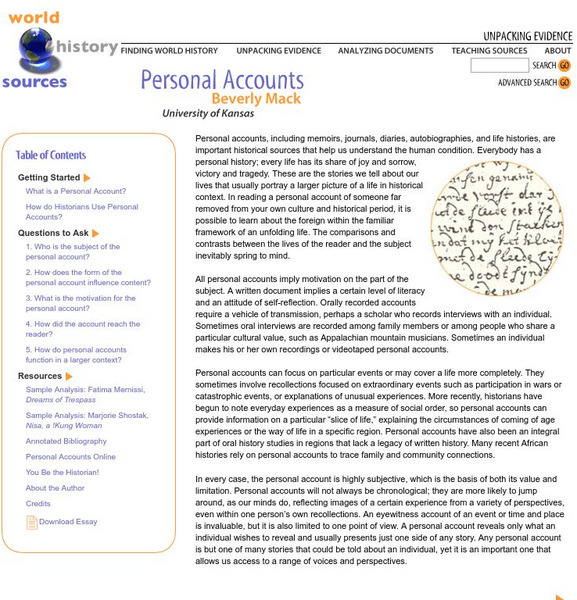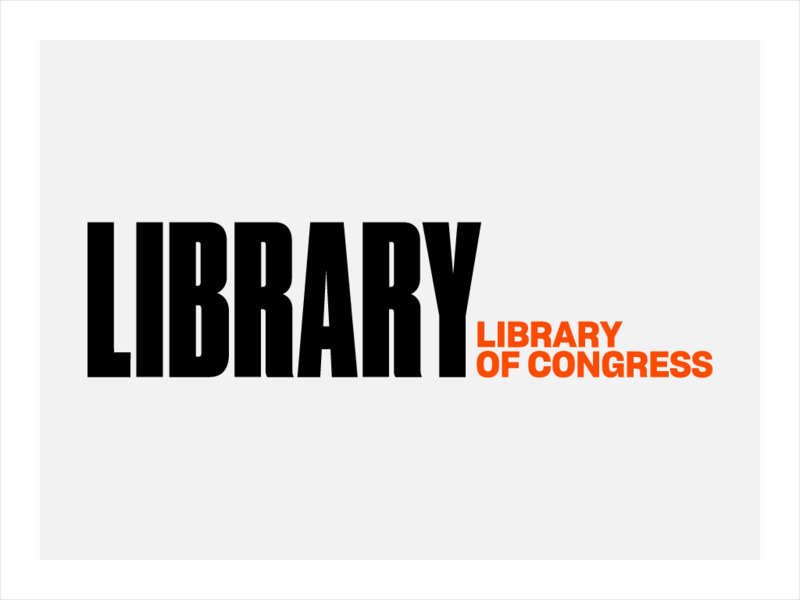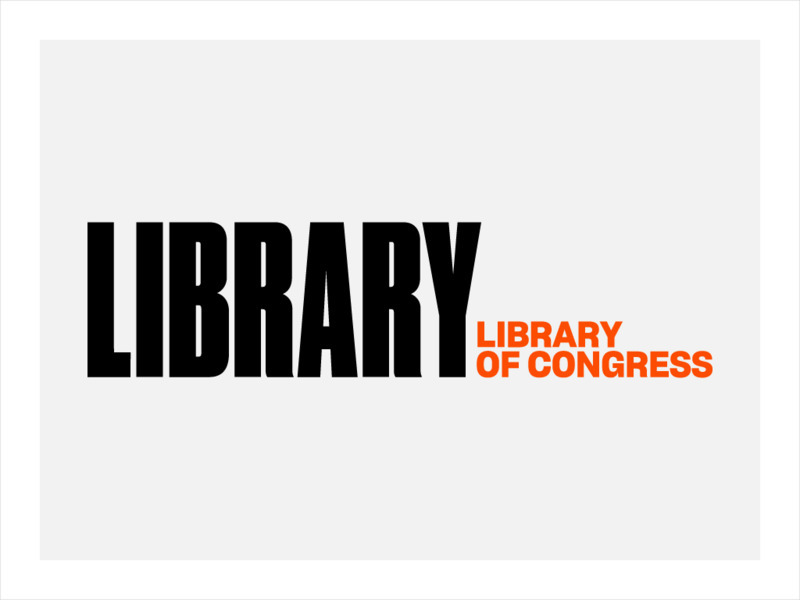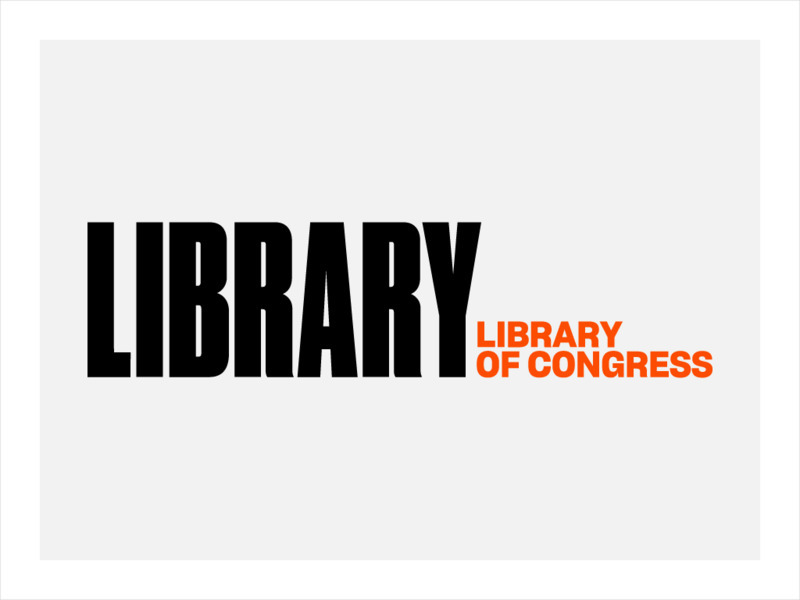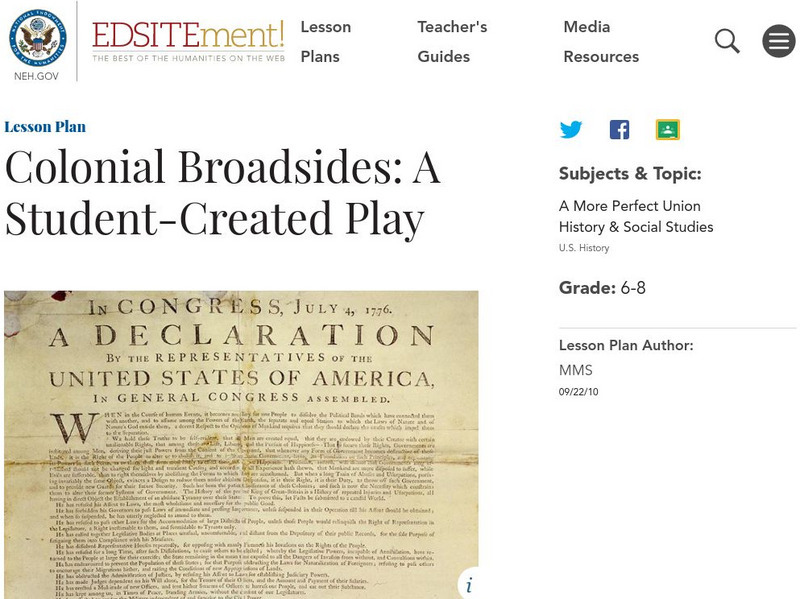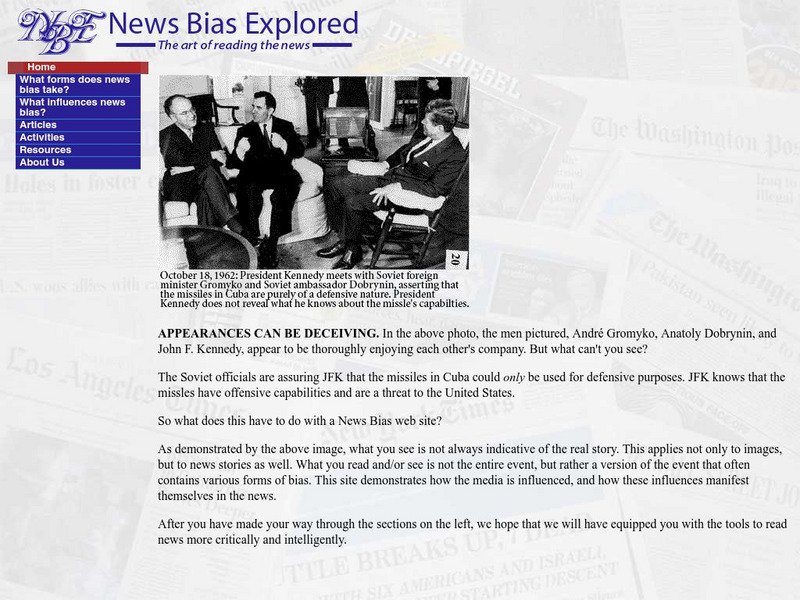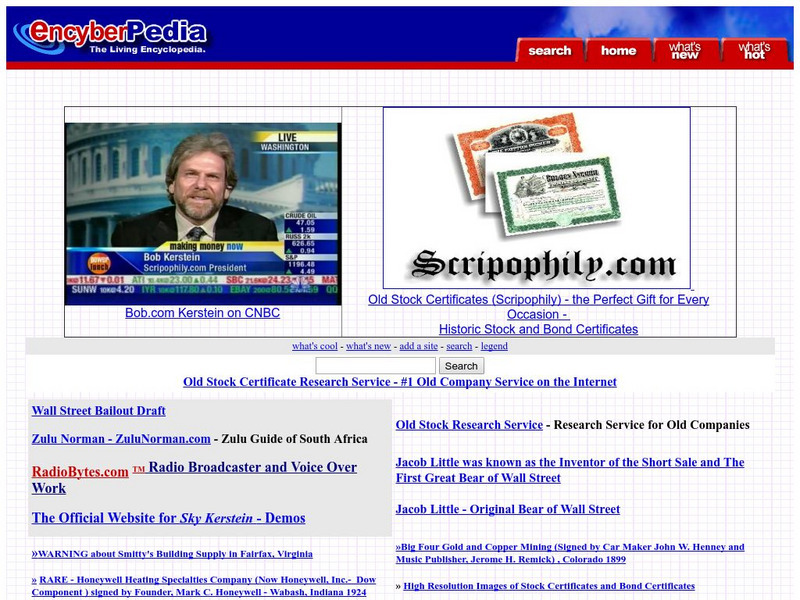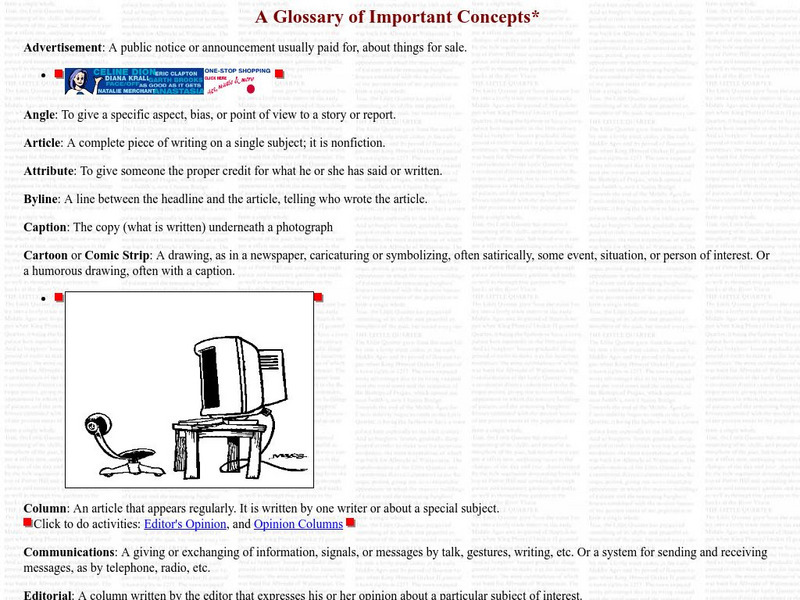Hi, what do you want to do?
George Mason University
George Mason University: World History Sources: Material Culture: Images
Investigate the meaning of different cultures' images and materials. Learn to examine different questions such as what is the image, what is the meaning, what is the function, and what is the social condition.
George Mason University
George Mason University: World History Sources: Newspapers
Discover how historians use newspapers and learn about the development of the modern newspaper. Get answers to many questions about different newspapers.
George Mason University
George Mason University: World History Sources: Official Documents
A guide to dissecting official documents. Learn how to find the author of documents, the primary audience, and other important information.
George Mason University
George Mason University: World History Sources: Personal Accounts
Discover how journals, memoirs, diaries, and autobiographies are important historical sources. Learn how historians use these personal accounts and get other questions answered.
Library of Congress
Loc: Primary Source Investigation
Choose from a list of photos from the Civil War, Reform, Harlem Renaissance, and Campaign to study and record observations.
Columbia University
Leaks Necessary to News Reporting
Anonymous sources are a troubling fact of life for journalists and news consumers, according to this article that quotes some of the profession's heavy hitters.
Library of Congress
Loc: Teachers: Using Primary Sources
The Library of Congress provides teachers with a framework that will help integrate primary sources into all areas of the curriculum. Sections include "Why to Use Primary Sources," "Citing Primary Sources," and "Finding Primary Sources."
Library of Congress
Loc: Creating a Primary Source Archive: All History Is Local
A lesson plan where students collect local primary documents and examine the interplay between national, state, local, and personal history.
Google
Google News Archive
Access thousands of primary sources documenting historic events with this Google news archive tool.
Digital History
Digital History: An Intro to the Study of History: The Four Questions [Pdf]
How does one study history? Find four basic questions that historians use to examine events in an effort to explain them and put them in historical context. By examining the Battle of Lexington and Concord, students can practice using...
Digital History
Digital History: Social Class in Colonial America [Pdf]
By examining primary sources such as diaries and tax records, and a chapter from a secondary source, learn about the social classes apparent in colonlial America. Suggested student exercises guide crtitical thinking assessment of the...
Library of Congress
Loc: Immigration History Firsthand
Immigration History Firsthand has been designed to provide elementary children with experiences which enable them to begin understanding primary sources. Young scholars move from personal artifacts to the vast Library of Congress online...
Library of Congress
Loc: Slavery in the United States: Primary Sources
This instructional activity introduces students to primary sources- what they are, their great variety, and how they can be analyzed. The instructional activity begins with an activity that helps students understand the historical...
Library of Congress
Loc: Primary Sources and Personal Artifacts
This lesson plan introduces the practice of using primary sources; where to find primary sources, what they are, how to examine them, and how to construct a context to tell more of the story.
Indiana University
The Center on Congress: An Introduction to Primary Sources
Discover the difference between primary and secondary sources, then take a quiz to test your knowledge.
National Endowment for the Humanities
Neh: Edsit Ement: Colonial Broadsides: A Student Created Play
In this lesson plan, students will consider "Colonial Broadsides: A Student-Created Play." The plan includes worksheets and other student materials that can be found under the resource tab.
University of Michigan
News Bias Explored: The Art of Reading the News
Real-life examples, interactive headline and image games and brief explanations make this an attractive site for learning to recognize media bias.
Polk Brothers Foundation Center for Urban Education at DePaul University
De Paul University: Center for Urban Education: Economic Connections [Pdf]
"Economic Connections" is a one-page nonfiction passage about the economics of importing and exporting goods among countries to get what people need. It is followed by an open-ended question that requires students to provide evidence...
Other
George W. Bush Presidential Library: Teaching Primary and Secondary Sources
This comprehensive lesson plan provides a fact sheet, reusable worksheets, source scenarios, and assessments.
Other
Encyber Pedia
An encyclopedia online. Just look for your topic to find information that you need. Provides information on a wide range of topics.
Other
English Global Village: Glossary of Journalism Concepts
This page contains definitions for words related to journalism.
Other
Historic Newspapers: Brief History of Newspapers
Site gives information on the origin of the newspaper in America and its development through the Industrial Revolution.
Other
Minnesota Historical Society: Minnesota Communities: Lesson: Primary Sources
Lesson plan with necessary documents attached in PDF format where students read three eye-witness accounts of a car accident and compare them to the secondary source insurance report. Then students read three eye-witness accounts of a...
Other
The Center for Public Integrity: Home Page
Excellent site for journalists and others who feel that it is their beat to keep a watchful eye on the political culture of the country through investigations and analyses of public service.








